Please click the sections below to learn more and watch recordings of the plenary sessions from SRHE Conference 2022: Mobilities in Higher Education.
Additional recordings of paper and symposium presentations will be available in the new year.
In this session, Emily F. Henderson, Nidhi Sabharwal, and Charoula Tzanakou will discuss issues around access to and participation in higher education. With a particular emphasis on qualitative research and capturing lived experiences of studying and working in higher education, this panel considers relational approaches to mobility in the sector, and aims to problematise binary thinking around (im)mobilities. Themes explored in this panel include belonging, social justice, (in)flexibility, and stuckness.
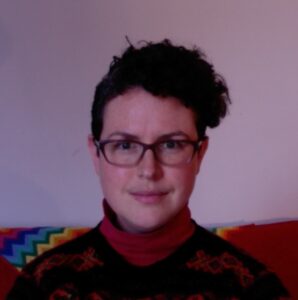
Dr Emily F. Henderson (@EmilyFrascatore) is a Reader in Gender and International Development in the Department of Education Studies, University of Warwick. Her books include Gender, Definitional Politics and ‘Live’ Knowledge Production (Routledge, 2020), and Exploring Diary Methods in Higher Education Research (Routledge, 2021). She is co-editor of the academic blog Conference Inference: Blogging the World of Conferences. Emily’s research lies in the areas of gender and international higher education; the academic profession, academic mobility and conferences; poststructuralist and feminist theory and research methodology. Emily’s current research projects include a 4-year project on institutional approaches to widening participation in India, and a project on gatekeeping in doctoral admissions.
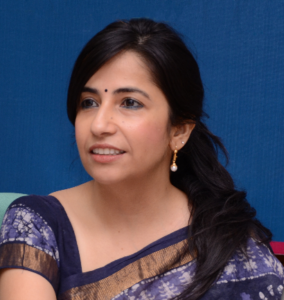
Nidhi S. Sabharwal is currently an Associate Professor at the Centre for Policy Research in Higher Education (CPRHE), National Institute of Educational Planning and Administration (NIEPA), New Delhi, India. Dr Sabharwal holds the position of Honorary Associate Professor in the Department of Education Studies at the University of Warwick. She has previously been the In-Charge of the CPRHE/NIEPA and has also served as the Director at the Indian Institute of Dalit Studies, New Delhi. Nidhi has studied inter-group inequalities across human development indicators, focusing on the role of caste- and gender-based discrimination in the market and non-market institutions, social protection policies and affirmation action measures. She has also studied excluded groups in other countries, such as the Burakumin in Japan. She is the co-author of Caste, Discrimination, And Exclusion in Modern India (Sage, 2015), co-editor of Bridging the Social Gap: Perspectives on Dalit Empowerment (Sage, 2014), co-editor of India Higher Education Report 2016: Equity in Higher Education (Sage, 2018), and India Higher Education Report 2022: Women in Higher Education (forthcoming). Nidhi’s current research area lies in the area of widening access and equity in higher education, with a focus on issues of college readiness, diversity, social inclusion and higher educational success of students from disadvantaged groups.
This plenary session provides a space to discuss and better understand the challenges facing higher education in situations of conflict. We will hear from Cara (the Council for At-Risk Academics) UK partners and Sham University collaborators, who will present on the work they have been doing as part of the Cara Syria Programme. Topics will include key considerations in creating and supporting this kind of partnership; the challenges and barriers faced by researchers on both sides in situations of instability and persecution; and the research frameworks and methodologies employed and adapted to facilitate this work. It will focus, in particular, on displaced academic communities in Northwest Syria, and ways in which the global HE sector can support and advocate for those seeking to sustain access to HE in conflict-affected contexts.
Panellists will be:
- Dr Tom Parkinson, Senior Lecturer, Centre for the Study of Higher Education, Reader and Programme Director of the MA and PGDip in HE, University of Kent
- Professor Miassar AlHasan, Head of Sham University Studies and Research Centre
- Dr Abdulkader Rashwani, Sham University Deputy Rector and Dean of the Faculty of Engineering
- Professor Aysha Divan, Faculty of Biological Sciences Director of Student Education, University of Leeds.
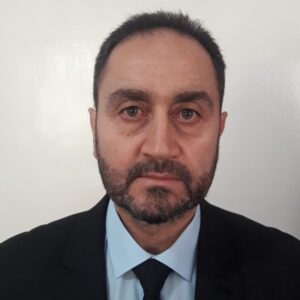
Prof. Miassar Alhasan is Head of Sham University’s Studies and Research Centre, Director of Sham’s Institute for Graduate Studies and a member of the university’s Quality Assurance Committee. Although his field is in electronic engineer, given the fragile situation in NW Syria, he has focused on supporting continued access to higher education for local and internally displaced Syrian communities and, more specifically, on research relating to the question of quality in higher education in conflict-affected areas. His most recent co-authored paper ‘Evaluating the effectiveness of student-record systems in conflict-affected universities in northwest Syria relative to student transition and mobility’ was published in the International Journal of Educational Research Open (IJEDRO) in 2022.
Dr Tom Parkinson is Reader at the Centre for the Study of Higher Education at the University of Kent, where he is Programme Leader of the PGDip and MA in Higher Education, and co-lead for the cross-institutional Migration and Movement Signature Research Theme Network. He has served as an external examinator and validator at several institutions across the UK and internationally. Tom’s research sits in the field of international higher education, with a focus on the Middle East. He has participated in the Council for At Risk Academics (Cara) Syria Programme since 2017.
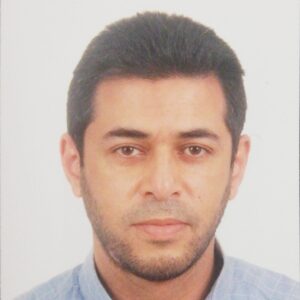
Dr. Abdulkader Rashwani is Sham University’s Vice-rector for Scientific Affairs and Head of Sham’s Quality Assurance Committee. He works in the field of applied chemistry with the recycling of concrete rubble as a construction material a major area of interest, looking to the future reconstruction of Syria. However, as a key member of Sham University’s senior management with the desire to ensure continued access to quality higher education for both local and internally displaced communities, his research interests also encompass the question of higher education in conflict. Most recently, he participated in a study looking at a risk-based approach to quality management in higher education, and co-authored the paper: ‘Exploring the value of a risk-management quality-assurance model to support delivery of quality higher education in the conflict-affected northwest of Syria.’ published in the International Journal of Educational Research Open (IJEDRO) in 2022.
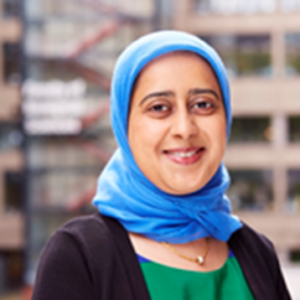
Aysha Divan is Professor of Higher Education and Pro-Dean for Student Education at the University of Leeds, UK, with over 10 years of leadership experience in HE, driving teaching enhancement and quality across a number of subject areas (STEM and non-STEM), within and beyond the UK. This encompasses development of quality benchmarks and associated accreditation of degree schemes, including international schemes. Her experience is highly multi-disciplinary with an emphasis on promoting evidence-informed curriculum development, interdisciplinary collaboration and capacity and leadership building in higher education.
Description: During this session, Rachel Brooks, Jan McArthur, Louise Morley, and Johanna Waters will discuss some of the key issues which inform our understanding of the current state of higher education within and beyond the UK, from the perspective of their current research. Our speakers will offer some critical reflections on how these issues may shape the future of higher education, and invite audience members to discuss such questions as: what does a desirable future for higher education look like, who has access to this future, and what challenges might impede its attainment?
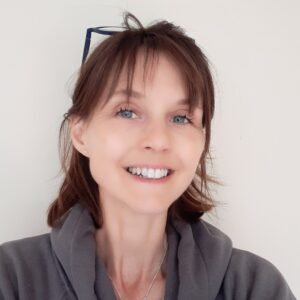
Johanna L. Waters is Professor of Human Geography and Co-Director of the Migration Research Unit at University College London. She is Co-Editor-In-Chief of the journal Global Networks. She works on issues related to transnational mobilities, families and education.
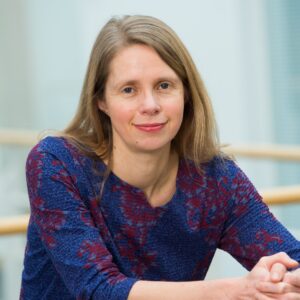
Rachel Brooks is Professor of Sociology and Associate Dean for Research and Innovation at the University of Surrey, UK. As well as being co-editor of the Routledge/SRHE book series, she is editor-in-chief of Sociology and an executive editor of the British Journal of Sociology of Education. She has published widely in the sociology of higher education. Recent books include Student Migrants and Contemporary Educational Mobilities (with Johanna Waters); Reimagining the Higher Education Student (with Sarah O’Shea) and Sharing Care (with Paul Hodkinson).
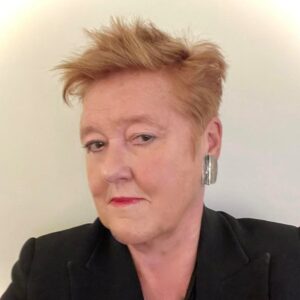
Louise Morley FAcSS is Emerita Professor of Higher Education and former Director of the Centre for Higher Education and Equity Research (CHEER) (http://www.sussex.ac.uk/education/cheer/) at the University of Sussex, UK. Louise has an international profile in the field of the sociology of gender in higher education. Her recent work is: Morley, L. & Leyton, D. (2023) Queering Higher Education: Troubling Norms in the Global Knowledge Economy .London: Routledge (click here to view). Louise is a Fellow of the Academy of Social Sciences, and a Fellow of the Society for Research into Higher Education, and has published widely in the field of higher education studies. See Sussex Research Online- http://sro.sussex.ac.uk/view/creators/461.html
![IMG_0345[2] sq](https://srhe.ac.uk/wp-content/uploads/2022/12/IMG_03452-sq-300x300.jpg)
Jan McArthur is Senior Lecturer in Education and Social Justice in the Department of Educational Research, Lancaster University, UK. Her research focuses on the nature and purposes of higher education and how these relate to practices of teaching, learning and assessment. She has a particular interest in critical theory and in her published work explores the ideas of Theodor Adorno, Max Horkheimer and Axel Honneth, applying these to higher education. As well as her books Rethinking Knowledge in Higher Education (Bloomsbury) and Assessment for Social Justice (Bloomsbury), Jan has published a wide range of journal articles on assessment, critical theory and social justice. Jan is a researcher in the ESRC and HEFCE funded ‘Centre for Global Higher Education’, and currently working on the international and longitudinal project: Graduate Experiences of Employability and Knowledge. This builds on the previous project: Understanding Knowledge, Curriculum and Student Agency. She is also Editor of Arts and Humanities in Higher Education.

